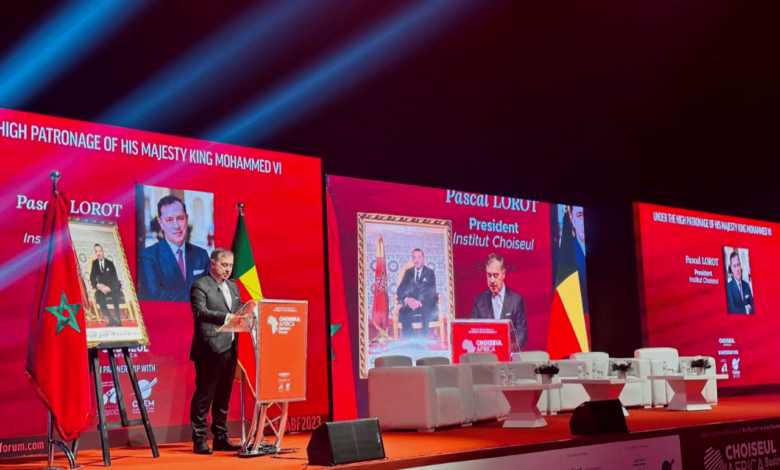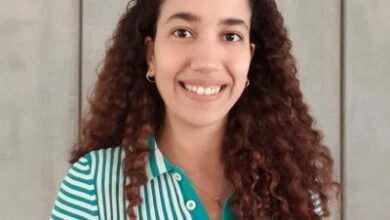Economic sovereignty : Morocco, the good performer
At the Choiseul Africa Business Forum, the Kingdom of Morocco outlined its strategy for achieving independence in such areas as food and energy. This autonomy encourages the development of intra-African trade and makes the country more resilient to economic crises. Beyond results, Morocco is promoting a state of mind.

By Mérième Alaoui, in Casablanca
« I am delighted to welcome you to Casablanca, a true bridge between Africa and Europe. I am delighted to see so many of you here, all of you ready to cement our economic and external cooperation across the continent, » said Pascal Lorot, President of the Choiseul Institute, at the opening of the Choiseul Africa Business Forum in Casablanca on November 16. It is no coincidence that Casablanca is hosting the fourth edition of this business event. In addition to its strategic geographical location, the Kingdom is regularly cited as an example of « economic sovereignty ».
Against the backdrop of a series of health, economic and geopolitical crises, the 800 or so participants from 60 countries were invited to consider ways of strengthening economic independence in such areas as energy, food, health, industry and digital technology.
Morocco has been working on this issue for a long time, as Nadia Fettah Alaoui, Minister of Economy and Finance, pointed out: « For decades, Morocco has implemented several economic development plans and programs aimed at building a modern economy capable of meeting the needs of growing and diversified demand for basic and manufactured products. The enlightened vision of King Mohammed VI has catalyzed reforms and projects aimed at modernizing and transforming the Moroccan economy, laying the foundations for a robust and competitive economy, » she said in a speech read out by the Minister for Energy Transition, Leila Benali.
Morocco, Africa’s second renewable energy country
In particular, sustained efforts have been made to modernize the agricultural sector and the agri-food industry. « The main objective is to strengthen Morocco’s food sovereignty and increase its export capacity, » says Nadia Fettah Alaoui. Reducing energy dependency through solar energy is another key priority for Moroccan public policy. According to the Global Electricity Review 2023, published by the British think-tank Ember Climate, Morocco is the second African country with the highest share of wind and solar energy. These two renewables account for 17% of its energy mix, compared with an estimated global average of 12%. Observers believe that the target of 52% of the energy mix coming from renewable sources by 2030 is realistic. Finally, according to various studies, Morocco could meet 4% or even 8% of the world’s demand for green hydrogen.
This ambitious positioning of energy independence has also increased the country’s resilience in the face of global crises. One example is the management of the COVID pandemic, during which Morocco supplied masks to some European countries. A budget of €3.2 billion (or 2.6% of GDP) was allocated to produce disposable and reusable masks for domestic use and export.
Intra-African cooperation as a lever for independence
Morocco’s quest for economic structuring and independence is also an opportunity to develop South-South relations. « Africa is now at the heart of opportunities, as the continent’s economic potential is far from being fully tapped. We need to support sustainable and inclusive economic growth by establishing real economic sovereignty for the African continent, » said Pascal Lorot. He stressed that diversifying partners and increasing intra-African trade are the levers of economic independence. Morocco has been using these tools for a long time. Nadia Fettah Alaoui reminded us that « only a global and joint African response will enable us, the African countries, to meet the challenges linked to the economic sovereignty of our continent ».
Morocco is the leading African investor in West Africa and the second largest on the continent. According to the latest estimates from the Ministry of Trade and Industry, trade with the continent is valued at 65 billion dirhams, an amount that has quadrupled in twenty years. Trade is still growing, with an increase of 39.9%. Egypt is still Morocco’s main African partner for the fourth consecutive year, followed in 2022 by South Africa, Djibouti, Tunisia and Côte d’Ivoire. These five countries account for 48.1%, or almost half, of Morocco’s trade with the rest of the continent.
But this shared African ambition for economic independence still faces many challenges. Economic growth, while promising, remains insufficient. In many sectors, dependence on world markets is structural, and recent crises have accentuated vulnerabilities. One of the solutions, Pascal Loriot reminds us, is still and always the private sector: « The private sector, which you represent, must be involved in discussions and debates, because economic sovereignty is unthinkable without it and without the emergence of common interests between the State and business ». A message echoed by Minister Nadia Fettah Alaoui: « Bilateral and multilateral partnerships and private sector initiatives are all tools that Morocco and other African countries can use to strengthen their economic relations and contribute to the sustainable development of the continent, » she stressed.
Independence, a question of mindset
In conference rooms, corridors and other informal but crucial forums, Morocco and its economic capital are regularly held up as an example. Beyond the results, it is the Moroccan mindset that is praised. « It’s essential and it shows. I’m used to coming to Casa for business, but these days there’s a greater desire to take things to the next level. There is a sense of pride, both Moroccan and African, in all walks of life, even among the waiters and drivers. And it’s not just for sporting reasons, » smiles a financial director from the Côte d’Ivoire. By reaching the semi-finals of the FIFA World Cup in Qatar, a historic first for Africa, Morocco has allowed the entire African continent to follow the competition with pride. This popular and economic momentum should continue with the confirmation that the Kingdom will co-host the next World Cup with Spain and Portugal in 2030.






